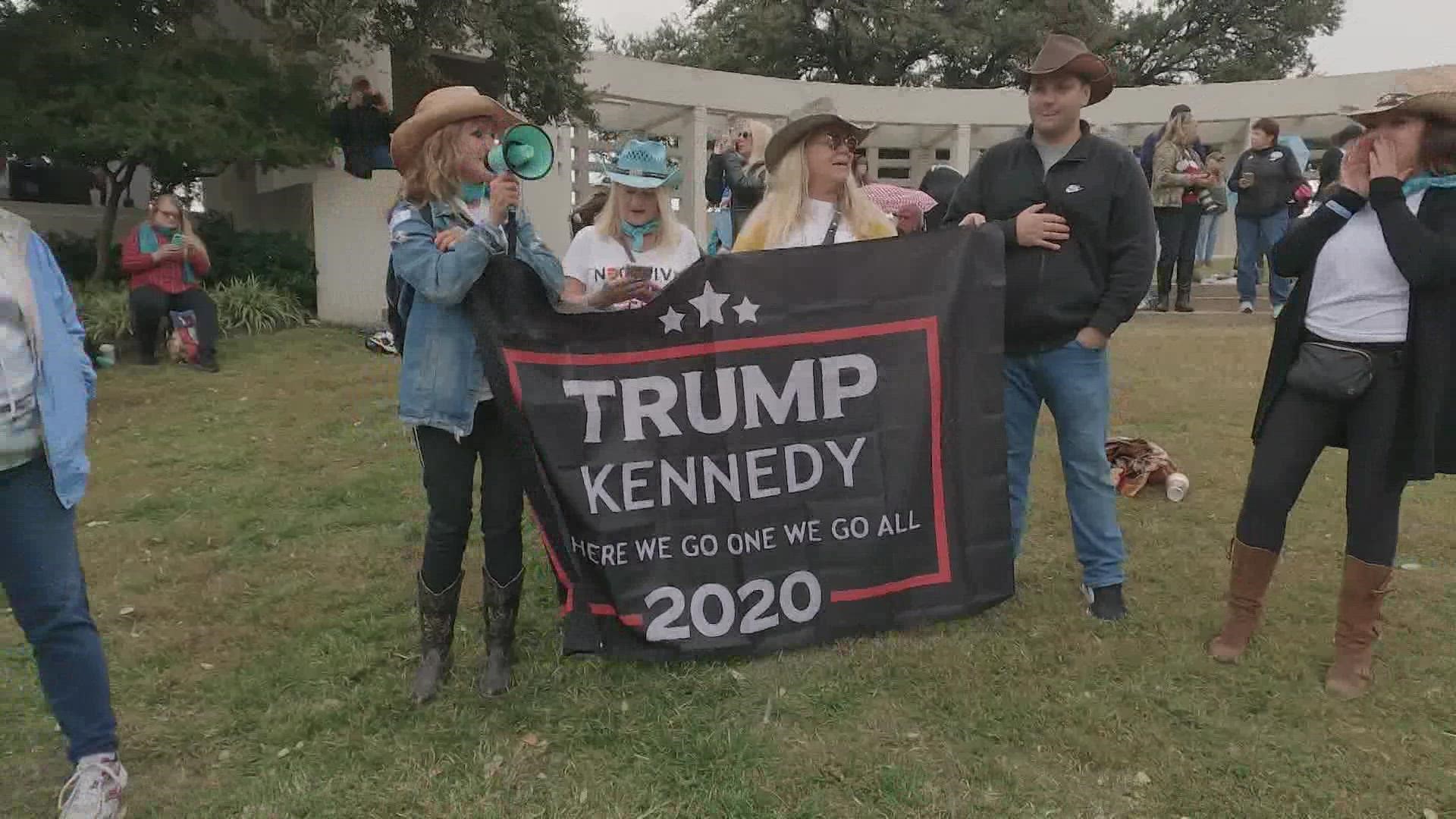DALLAS — In the last few months, QAnon followers have been flocking to Dallas. And what, exactly, is QAnon?
You've probably heard about the conspiracy plenty over the last year, including during the Jan. 6 riots at the U.S. Capitol.
One of the faces of the Capitol riots was a man named Jacob Chansley, the so-called "QAnon Shaman" who donned face paint and horns inside the Senate chamber.
Chansley on Nov. 17 was sentenced to 41 months in prison, one of the harshest punishments handed down in the Capitol riots investigation.
Chansley decided to appeal his sentencing. His case and ongoing prosecutions against other people involved in the Jan. 6 riots have not slowed the QAnon movement, at least not here in Dallas.
Their most notable recent protest came in early November, when they gathered at Dealey Plaza and claimed John F. Kennedy Jr., who died in a plane crash in 1999, would reappear (spoiler, he did not).
Last month, WFAA's Kevin Reece was at Dealey Plaza as hundreds of followers came together on Nov. 2.
This is an account from that day, including video (in the player above), interviews from people on the ground and experts explaining the QAnon phenomenon.
"The election was stolen"
"Word on the street is that JFK Jr. will show up and introduce his parents," one man said.
When Reece asked another resident what their role was that day, Mike Penny responded, "I'm here to support God-fearing patriots in the movement."
"We know Donald Trump won. The election was stolen," said Rose and Daryl Casteel, of Midland, while Reece was on scene at the plaza.
Dr. Michael Phillips is an author and a professor of American history at Collin College who says the common belief in "apocalyptic religions" is that the end never quite happens, and that "it's always around the corner."
In relation to the gathering at Dealey Plaza, Phillips sees more than political theatre, he sees potential trouble for the future.
"It's a merger of far-right wing politics with apocalyptic religious beliefs," Phillips said.
"I think we need to stop thinking of it as a political movement and think of it as a religious movement," Phillips said.
A shared "belief structure"
Dr. Kimi King is an attorney and professor of political science at UNT-Denton.
"Some people will call it a cult. Some people will call it a family. What matters is that there is a belief structure there that you share in common," King said. "It's when that belief structure gets challenged that it becomes problematic."
The Southern Poverty Law Center considers QAnon " a sprawling spiderweb of right-wing internet conspiracy theories with anti-semitic and anti-LGBTQ elements that falsely claim the world is run by secret cabal of pedophiles who worship Satan are plotting against President Trump."
In 2019, the FBI warned of "conspiracy theory-driven domestic extremists," as a growing threat, with QAnon on that FBI list.
And QAnon converts were a visible part of the attack on the Capitol on Jan. 6, and among the hundreds arrested so far.
Many of the people who gathered at Dealey Plaza that day agreed on one thing: they've lost family members or friends due to their beliefs.
Entire online communities on Reddit are dedicated to that, showing that conspiracy theories like these have torn families apart.
"We've lost families. Marriages have been destroyed," one man told Reece. "People have lost jobs, their livelihoods because of something they believe in."

